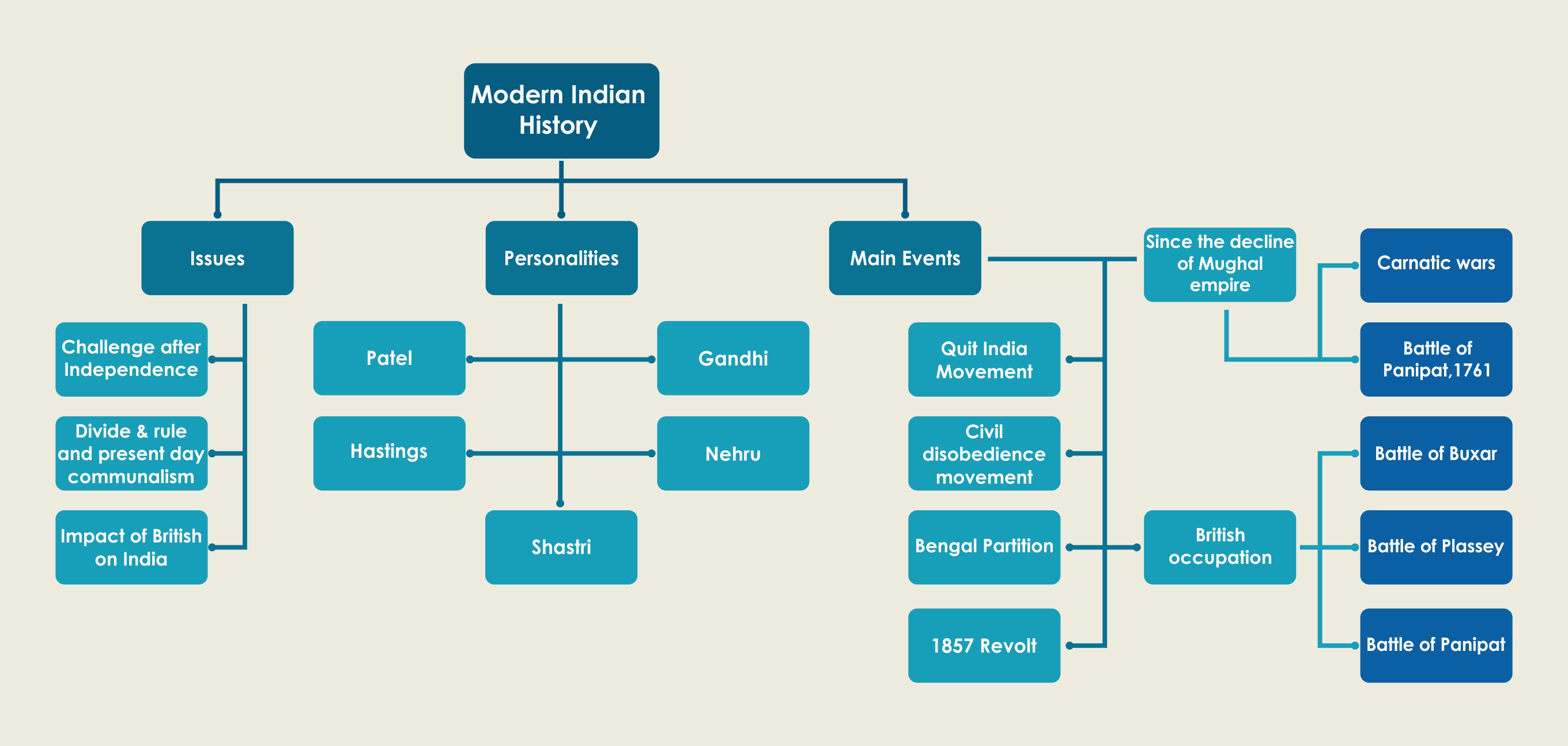“A picture is worth a thousand words.” This English idiom says it all. Sometimes a good, simple picture explains perfectly well a concept or a story that even a whole essay cannot. This holds true even when you write answers for your exams. Most UPSC toppers of the IAS exam swear by the use of diagrams, flowcharts, etc. in their mains answers. This article gives you tips to draw diagrams and score better marks in the essay, general studies, and optional papers of the UPSC mains exam.
| Candidates can enhance their UPSC exam preparation by attempting UPSC Previous Years Question Papers now!! Check the following links to further their chances of cracking one of the toughest exams in the country: |
Diagrams in UPSC – Importance
- They enhance your answer quality.
- They show your understanding of the concept.
- They explain a lot in less time. This saves time during your mains exam.
- If you are running out of time during the exam, you can always rely on illustrations to get at least a few marks.
- It is an effective tool to provide a summary of the information contained in the written answer.
- Especially, geography diagrams for UPSC Mains paper for the physiography related questions will fetch the aspirants a great score.
- In addition to diagrams, charts also increase the readability of the answers and exhibit a clear understanding of the question.
How to make diagrams in UPSC answers
There are various kinds of diagrams that you can make to augment the quality and readability of your answers in the UPSC mains exam. You must know which type to use wherein the answers. They must be relevant and useful to understand the answer or the point you are trying to make better to the examiner’s eye.
- Give proper labels in your diagrams.
- Insert geography diagrams such as maps for answers in UPSC Mains GS 1.
- The illustrations should be neat and suitably sized.
- The representations should be relevant to the answer.
- Use appropriate stationery for giving diagrams, etc.
- Practice diagrams and charts during your UPSC preparation time.
Get UPSC answer writing tips to score high in the IAS exam.
Types of Diagrams and Pictorial Representations in UPSC
Tables
Tables can be used when you have to show some numerical data. You can also show classifications and features in tables. An example from sociology is given below:
Example of Table showing types of family:-
| Basis | Types |
| Authority |
|
| Residence |
|
| Ancestors |
|
| Marriage |
|
Bar graphs/charts
Bar graphs are used when you need to compare things between different groups or track changes over time. Graphs are best used in economics topics. An example is given below:

Line Graphs
Line graphs are apt for showing trends within data over a period of time and relationships between variables. These are also best employed in economics. An example is given below:
Use them only if you are sure of the data.

Pie charts
These are the best to show different parts as a proportion of the whole. A pie chart is a type of graph in which a circle is divided into sectors each representing a proportion of the whole. They can be used in economics, polity, essay paper, etc. An example showing the education level of female population aged 15-49 in India is given.

Diagrams/Drawings in UPSC Answers
Diagrams/drawings should be used to reinforce or add on to the textual information, or for better clarity through diagrams. This is best used in science subjects. It is also used in history and geography. An example from history is given below:
Simple scheme of a Hindu temple:

Another example is given from Biology: Cell Structure

Flow chart for IAS preparation
A flowchart is a diagram of the sequence of events or movements or actions of people or things involved in a complex system. An example is taken from anthropology.

Mindmaps
Simply put, mind mapping is a graphical or pictorial representation of a piece of information/concept/idea. You can make mindmaps out of any concept and in any subject. An example from modern Indian history is illustrated below:

Also read: How to use mind maps for IAS preparation
Candidates can go the following links to prepare well for the upcoming UPSC exam-
Quick Facts related to using Diagrams in UPSC Mains
Refer to the table below that answers frequently asked questions related to the use of diagrams in UPSC Mains:
|
Facts related to using Diagrams in IAS Mains |
|
| Can aspirants draw diagrams in the essay paper of UPSC Mains? | If it is really relevant, then aspirants can depict a fact using a diagram. However, in an essay, an aspirant should try to stick to only writing. |
| Is it important to be good at drawing for using diagrams in UPSC Mains answer writing? | No, it is not required to be best at drawing. The only requirement is that what you draw should depict what is needed. Rest, the perfection in the diagram is not needed. |
| How to make use of flowcharts while writing answers in UPSC Mains? | Flowcharts can be used while writing an answer in GS-I (E.g. Historical Chronology), GS-III (E.g. Environmental Treaties), GS-II (E.g. Political Hierarchy.) |
| Are diagrams and maps important in UPSC CSE mains? | For subjects like Geography, maps and diagrams play a significant role. Similarly, diagrams can be used in answers related to environment and biodiversity, etc. |
Related Links:
| GS 1 Structure, Strategy and Syllabus | GS 2 Structure, Strategy and Syllabus |
| GS 3 Structure, Strategy and Syllabus | GS 4 Structure, Strategy and Syllabus |
The above details would help candidates prepare for UPSC 2021. UPSC exam-related preparation materials will be found through the links given below.
Aspirants can find complete information about upcoming Government Exams through the linked article.


Comments